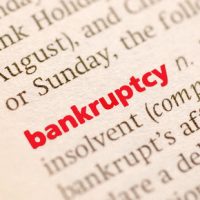Income Tax Liens & Bankruptcy

Uncle Sam always gets paid, and he has many powerful tools to help him get the money he is owed. One tool is the lien. A lien is a right to payment that attaches to property. This means that if you sell an asset, you will have to pay the lien out of the proceeds. A lien can also give the lienholder a right to foreclose on certain property and force a sale.
We encourage clients to do everything possible to avoid having the IRS put a lien on their property for unpaid income taxes. As our Plantation bankruptcy attorney explains below, bankruptcy might help with repayment of a tax debt if a lien is already on your property.
Avoid the Lien by Filing for Bankruptcy
The automatic stay that goes into effect when you file for bankruptcy protection prevents creditors from taking action to collect on a debt. The government is also subject to the automatic stay, which might surprise people. However, the IRS cannot put a tax lien on your property if you file for bankruptcy first.
For this reason, our Plantation bankruptcy attorneys always ask our clients about their tax debt. Sometimes we must race to the courthouse to beat the IRS before it can file its lien.
Unfortunately, some people wait too long and the lien is already recorded on their property before they come to talk with us. Nevertheless, a bankruptcy might help.
Filing Chapter 13 with a Nondischargeable Tax Debt
Not all debts are dischargeable, and this also applies to tax debt. Let’s say you have an income tax debt that you can’t discharge in bankruptcy. If so, you can still give yourself more time to pay off what you owe if you file for Chapter 13 protection.
A Chapter 13 bankruptcy takes 3-5 years to complete. However, you get to spread out any tax payments over the plan, so you get more time. You also do not have to make payment arrangements with the IRS. Instead, the tax debt is incorporated into your monthly payment plan.
When you complete your Chapter 13 bankruptcy, you should have paid off your tax. The IRS should then release the tax lien on your property.
Filing for Chapter 7 with a Dischargeable Tax Debt
Let’s say the tax debt qualifies for discharge. If you filed for Chapter 7, it could be wiped out in a matter of months.
Unfortunately, bankruptcy will not get rid of a lien, which is more of a property interest. So any prior tax lien that was properly recorded will survive a Chapter 7 bankruptcy and remain on your property. This gives the IRS a right to payment.
However, in some cases, our clients can still benefit, especially if they have few assets. Remember, a lien only attaches to property. If you don’t own a home and have few personal belongings, then the lien isn’t attached to anything. You could ask the IRS to release the lien—especially if your tax debt is small.
Let’s Talk about Your Tax Debt
Nowack & Olson PLLC has helped more than 20,000 people go through the bankruptcy process. We have erased all kinds of debt, even tax debts. Please call our Plantation bankruptcy attorneys today at 888-813-4737 to learn more.
https://www.floridabankruptcynow.com/can-a-business-owner-benefit-from-a-chapter-13-bankruptcy/
